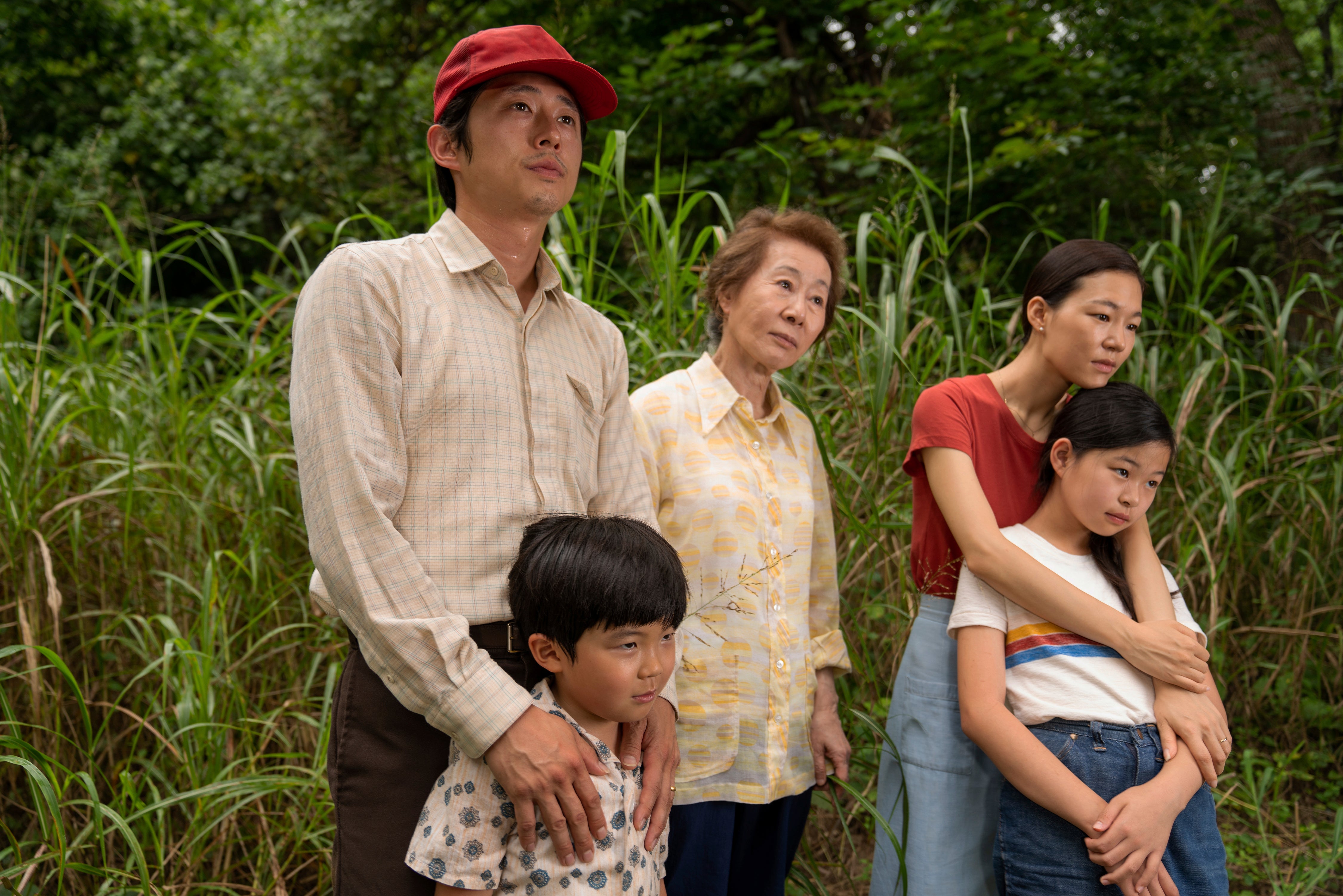Review: An essential portrait of a family in ‘Minari’
Filmmaker Lee Isaac Chung based the new film “Minari” on his own childhood in the 1980s, when his Korean American parents moved to Arkansas to start a farm

Your support helps us to tell the story
From reproductive rights to climate change to Big Tech, The Independent is on the ground when the story is developing. Whether it's investigating the financials of Elon Musk's pro-Trump PAC or producing our latest documentary, 'The A Word', which shines a light on the American women fighting for reproductive rights, we know how important it is to parse out the facts from the messaging.
At such a critical moment in US history, we need reporters on the ground. Your donation allows us to keep sending journalists to speak to both sides of the story.
The Independent is trusted by Americans across the entire political spectrum. And unlike many other quality news outlets, we choose not to lock Americans out of our reporting and analysis with paywalls. We believe quality journalism should be available to everyone, paid for by those who can afford it.
Your support makes all the difference.“ Minari ” could not be more personal. Filmmaker Lee Isaac Chung based the film on his own childhood in the 1980s, when his Korean American parents moved to Arkansas to start a farm. And it’s the specificity of this delicate tale that makes it so universal and so great.
Only a rare and special kind of film has you fully invested from the first minute, and “Minari” makes you fall in love with the Yi family immediately. Steven Yeun is the father, Jacob, who has moved his wife, Monica (Han Ye-ri), their daughter, Anne (Noel Kate Cho), and son, David (Alan Kim), to Arkansas with the promise of a new start. How funny it is to imagine a time not so long ago when it was possible to not know what the house your husband has purchased looks like, but Monica’s face turns subtly to stone when they pull into their vast lot to find a trailer home on concrete blocks. Inside, it’s even bleaker. But the kids don’t seem to mind. They think it’s cool that their home has wheels and take off running through the massive yard.
Jacob, it turns out, has not been entirely forthcoming about his own intentions for their new life in the Ozarks. Monica thinks they left California for space and more affordable living. He later admits that he wants to be a farmer and to get out of the business of sexing chickens at the hatchery. It’s hard not to wonder who, exactly, he is looking out for placing them an hour’s drive from a hospital when David has a precarious heart condition and going into even more debt than before in pursuit of this dream. It’s one of those fundamental splinters that festers throughout the film, which is a great deal lighter than it might seem thus far. The addition of Grandma (Youn Yuh-jung), straight from Korea, helps quite a bit with the humor. She plays cards and swears and doesn’t know how to bake cookies and likes wrestling. But she also helps David, who Monica treats like a porcelain doll, enjoy being a kid.
One of the great triumphs of “Minari” is its presentation of authentic childhood. These kids are not saints or stand-ins or mouthpieces. They are their own persons. Anne is aware of her parents’ friction and tries to both mitigate and be a kind of surrogate parent. David, meanwhile, is more unformed at only 6, but still has his own dramas and fears. The arrival of the grandmother sends him into a tailspin. First he is anxious about this person he’s never met and has to share a room with, then disappointed and judgmental (he says she doesn’t act like a real grandmother and smells like Korea). Their relationship transforms and grows, however, and turns into real love and connection even if it remains imperfect.
“Minari” is told in almost episodic vignettes that are as clear and hazy as a memory, jumping around the big and the small of these unique lives. The plot is scarcely more than the mundanities of the everyday. There are injuries and disappointments and chores and dinners and loneliness and it all just flows from day to day. This makes the drama of the third act feel a little contrived after such studied realism, but even if it suddenly starts feeling like a movie out of nowhere, it’s still a poetic one that transcends its own walls.
It’s the story of a husband and a wife whose life has not gone as planned and who are losing faith in one another. It’s the story of immigrants assimilating into the heartland while trying to preserve their own heritage. It’s the story of young kids torn between cultures. It’s the story of a little boy and his grandmother. It’s the story of anger and expectations and love and life. It is the story of an American family.
“Minari,” an A24 release in select theaters and virtual platforms, is rated PG-13 by the Motion Picture Association of American for “some thematic elements and a rude gesture.” Running time: 115 minutes. Four stars out of four.
___
MPAA Definition of PG-13: Parents strongly cautioned. Some material may be inappropriate for children under 13.
___
Follow AP Film Writer Lindsey Bahr on Twitter: www.twitter.com/ldbahr